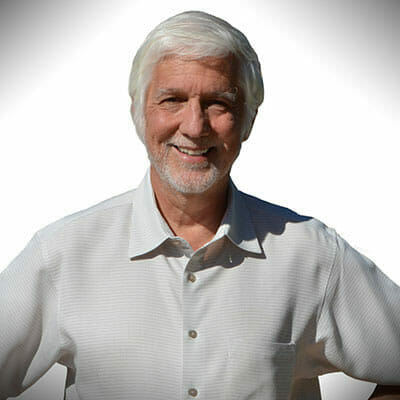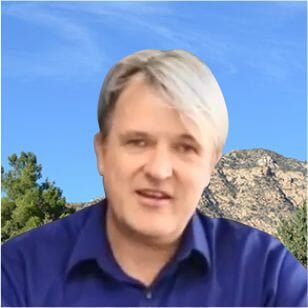Last Updated on May 31, 2024 by
Alternative to Meds Editorial Team
Medically Reviewed by Dr Michael Loes MD
As humans, we are flooded with toxins daily.
Last Updated on May 31, 2024 by
Alternative to Meds Editorial Team
Medically Reviewed by Dr Michael Loes MD
As humans, we are flooded with toxins daily.
Anxiety is one of the most common and debilitating afflictions we treat. There are various presentations of symptoms and these, if analyzed carefully, can lend more exact definition so that effective treatment may be provided.
Anti-anxiety medications consist of several different classifications of drugs, according to the Merck Manual, including the categorization of benzodiazepines which upon discontinuation, are known to present a pronounced set of benzodiazepine withdrawal symptoms.
Other anxiety medications include sedatives, which are meant to help people feel more relaxed, and antidepressants which may alter brain chemistry. These drugs are also known to cause symptoms of sedative or antidepressant withdrawal if a person decides to quit taking them without guidance.
Barbiturates are also classified as medications used for anxiety, and both barbiturates and benzodiazepines can become very addictive very quickly. Some individuals who take medications for anxiousness or panic attacks may become dependent on these medications after only a few weeks, which can even further compound their problems with anxiety.
Our medication withdrawal program works not only to relieve withdrawal, but we also search for the underlying source of anxiety and address it scientifically. We search for the underlying causes of anxiety and work to eliminate them with proven methods.
During the period of transitioning off of an anxiety medication, one may feel emotional and psychological anti-anxiety withdrawal symptoms. Heightened anxiousness, feeling confused, restlessness, irritability and not being able to sleep are all symptoms related to withdrawal from anti-anxiety drugs. Hallucinations can also occur, which can deeply disturb the person who is experiencing them, and those around her or him. Symptoms of physical withdrawal are also characteristic of many medications used for anxiety.
Since the body will become accustomed to consumption of the substance the individual has been taking, the physical body may react in adverse ways when you are no longer supplying it with drugs. You may feel weak and shaky, sweat profusely, and experience tachycardia (racing heartbeat) when in withdrawal. With the professional help of our treatment center, the most uncomfortable aspects of withdrawal are eliminated. We have scientific solutions that can help you.
Common anti-anxiety medication withdrawal symptoms can include nausea, seizures, convulsions, low blood pressure, and delirium. To minimize symptoms, when a person wants or needs to quit using a certain anxiety medication, one of the first steps is tapering off of the medication under the guidance of a doctor.
Stopping “cold turkey,” for example, from a potent barbiturate or benzodiazepine, is very likely to make anti-anxiety withdrawal worse. We can help you create a gentle taper-down method whereby the dose is gradually decreased over whatever period of time is necessary and varies person to person.
Since anxiety can remain after the medication is gone, for most individuals, rapid withdrawal doesn’t relieve the issues. In addition, individuals transitioning off of anxiety drugs need strong systems of support in place for helping them through this process. Our treatment center offers the best available therapies and methods of anti-anxiety withdrawal help.
Complex treatment programs are custom made by medical professionals for each of our clients. We do lab testing and investigate thyroid function, hormonal function, adrenal function, toxicity levels, mineral levels, and more to identify any abnormalities that may have contributed to the symptoms that led to being medicated.
We search for any possible underlying medical or genetic causes of mental health problems. We offer addiction counseling, spiritual counseling, group therapy, and other counseling so clients can discuss and express anxiety and other feelings. We provide natural substances, supplements, whole and organic food, vitamins and minerals to stabilize the neurochemistry. We work to provide relief on all levels, physically, emotionally, biochemically, spiritually and medically.
Withdrawal can be a symbol of the neurochemistry attempting to re-stabilize itself, but not having the neurochemical reserves to do so. Our scientific methods of balancing the brain have helped thousands of individuals become mentally healthy without drugs. Our approaches make this transition to balance comfortable and safe. We address these medications, because an unsupported withdrawal from anti-anxiety medications like benzodiazepines is challenging to endure.
Our methods include gentle tapering techniques, a removal of accumulated neurotoxins in the individual’s body from the drug or their environment, natural substances targeted to create neurochemical support, peer support, and the use of many relaxation therapies that include sauna therapy, massage, yoga, Qigong, Reiki, and acupuncture.
When a person is trying to overcome addiction to anti-anxiety medications, they can face some of the most challenging problems, including withdrawal symptoms. Alternative to Meds Center provides healing therapies and treatment techniques to simplify the process of recovery and alleviate symptoms of withdrawal.
The symptoms that led to anxiety medication use can be treated better without medication, as the body ultimately becomes tolerant to these drugs. Our methods include the use of natural substances for neurochemical support, careful techniques for removal of the accumulated neurotoxins that are in the individual’s body (including drug residues) after exposure from their environmental surroundings.
Other helpful therapies include peer support, relaxation techniques, counseling, Life Coaching, yoga, massage, hiking, group therapy, craniosacral massage, meditation, music and art therapy, sauna, and acupuncture.
Our treatment center addresses more than addiction and withdrawal, we teach our clients how to handle mental health symptoms in effective, sustainable ways. We assemble an individualized treatment regimen for every client. There are many effective anti-anxiety alternatives and other answers to mental health besides lifelong use of prescription drugs.
For those who have started taking anti-anxiety medication, and are unable to tolerate side effects, or have not been responsive to traditional medication; anti-anxiety alternatives help and could change your life. We provide anti-anxiety alternatives treatment that allows clients to stop taking these medications and transition into the use of anti-anxiety natural alternatives. We focus on finding and correcting the causes of symptoms which resulted in taking anxiety medication.
There are constantly growing numbers of individuals around the world who suffer from anxiety related symptoms and as this number increases annually, there are more people who are beginning to consider anti-anxiety alternative treatments to cure forms of anxiety and depression. This desire for natural anti-anxiety alternative medicine is primarily due to the well-known prescription medications used to treat panic attacks and anxiety that are laden with several various side effects which can pose extreme risks to health over extended use. Often, those suffering from a condition of anxiousness believe the only way possible to relieve this stressful problem is by medicating themselves. However, traditional treatment is not the only option. There are effective ways to treat symptoms with alternatives to anti-anxiety prescription drugs.
You do not have to be caught in routine of medication and doctor visits. Our treatment facility is a place where medical professionals assist individuals in reducing their dependence to prescription medications, alcohol and other drugs.
We do this through employing very gentle tapering techniques, stabilization of the neurochemistry through natural substances, and removing the neurotoxins that could have contributed to symptoms of anxiety. The anxiety or panic attacks that you suffered led to being medicated In many cases of chronic anxiety, we identify an accumulation of toxins in the body that are over-stimulating to their nervous system, which is what usually led to use of these drugs in the first place. There are better, healthier solutions that do not involve additional side effects.
We create uniquely personalized treatment plans for each of our clients.
Does it seem like you have attempted every method to end side effects of anti-anxiety medication and nothing has helped or worked? Do you feel as though you have an over-stimulated or overexcited nervous system? With most people, rapid forms of anxiety medication withdrawal will not truly alleviate the side effects, and anxiety can still remain after the drug is gone. Therefore, we aim to provide relief that is lasting and sustainable. We work to find the original causes of the symptoms which resulted in being medicated with anti-anxiety drugs.
You can eliminate side effects, prevent painful withdrawal and continue your life without remaining anxiety. We welcome your questions. Please reach out and give us a call to find out more about natural alternative treatments for anxiety.
Originally Published Sep 13, 2018 by Lyle Murphy

Dr. Michael Loes is board-certified in Internal Medicine, Pain Management and Addiction Medicine. He holds a dual license in Homeopathic and Integrative Medicine. He obtained his medical doctorate at the University of Minnesota, Minneapolis, MN, 1978. Dr. Loes performed an externship at the National Institute of Health for Psychopharmacology. Additionally, he is a well-published author including Arthritis: The Doctor’s Cure, The Aspirin Alternative, The Healing Response, and Spirit Driven Health: The Psalmist’s Guide for Recovery. He has been awarded the Minnesota Medical Foundation’s “Excellence in Research” Award.

Lyle Murphy is the founder of the Alternative to Meds Center, a licensed residential program that helps people overcome dependence on psychiatric medication and addiction issues using holistic and psychotherapeutic methods.
Can you imagine being free from medications, addictive drugs, and alcohol? This is our goal and we are proving it is possible every day!
Read All StoriesView All Videos